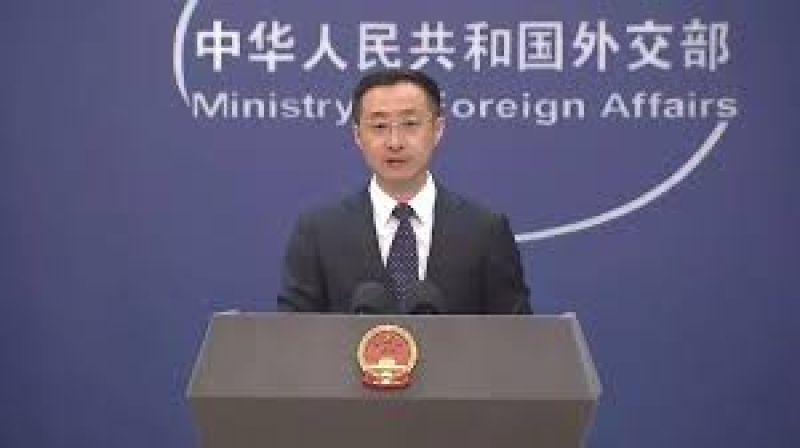- Inqilab Monch Seeks Home Adviser’s Exit |
- UN Calls for Calm in Bangladesh After Protest Leader’s Killing |
- DMP issues 7 traffic directives for Osman Hadi’s Janaza |
- Vested quarter fuelling chaos to impose new fascism: Fakhrul |
- Hadi’s namaz-e-janaza at 2:30pm Saturday |
BRICS Should Lead Global Peace and Dev: Chinese FM

Chinese Foreign Minister Wang Yi has called on BRICS nations to step forward as key players in championing global peace and development, emphasizing the bloc's growing influence in a world marked by increasing instability.
Wang, who is also a member of the Political Bureau of the Central Committee of the Communist Party, made his remarks during the first-stage BRICS Foreign Ministers' Meeting held in Rio de Janeiro on Monday. The meeting, chaired by Brazilian Foreign Minister Vieira, focused on the role of BRICS nations in promoting peace and security worldwide.
Noting that 2023 marks the 80th anniversary of the United Nations’ founding, Wang highlighted the pivotal role the organization has played in advancing peace and human progress. However, he warned that the international landscape has undergone profound changes, with new and severe challenges to global peace and development. These include the erosion of international cooperation, the destabilization of long-established diplomatic norms, and growing uncertainties surrounding peaceful development.
“The fundamental question now is whether countries around the world can make the right choices at this critical juncture,” Wang said. “BRICS countries, as a constructive force on the international stage, should take the lead in defending peace and fostering development.”
Wang laid out several key areas where BRICS should prioritize its efforts:
Universal Security and Cooperation
He urged the bloc to uphold the principles of universal security, as outlined in President Xi Jinping’s Global Security Initiative. This includes advocating for security governance based on mutual respect and fairness, while promoting lasting peace through dialogue and win-win cooperation, rather than confrontation or rivalry.
Promoting Peace through Dialogue
BRICS, according to Wang, should actively support diplomatic efforts to resolve conflicts. He emphasized the importance of an impartial stance and the resolution of differences through negotiation. China, he reiterated, supports all efforts to peacefully resolve the Ukraine crisis and hopes for a fair, lasting peace agreement.
On the Middle East, Wang reiterated China’s support for a comprehensive ceasefire in Gaza and the long-term solution of a "two-state solution" to ensure peaceful coexistence between Palestine and Israel.
Consolidating the Foundations of Development
BRICS nations must continue advocating for open cooperation and protecting the multilateral trading system, Wang stated. By promoting inclusive economic globalization, the bloc can foster mutually beneficial growth for all nations. China, he added, is committed to working with BRICS to tackle poverty, improve healthcare, education, and agriculture, and offer public goods to the Global South.
Expanding Practical Cooperation
Wang called for enhanced cooperation among BRICS members in new and critical areas, including counter-terrorism, vaccine research, food security, and technology, such as deep-sea exploration and outer space initiatives. Strengthening collaboration in these fields is essential for addressing the complex global challenges of today.
Additionally, the meeting marked a significant milestone with Indonesia attending as a full BRICS member for the first time. The BRICS nations collectively expressed support for a series of global initiatives championed by China.
In the face of a rapidly evolving geopolitical situation, the BRICS nations affirmed their commitment to unity and cooperation, opposing power politics and double standards. They reiterated their dedication to peaceful conflict resolution through diplomacy, rather than military action.
As the world grapples with multiple crises, the BRICS bloc’s unified approach to global peace and development has never been more crucial.

